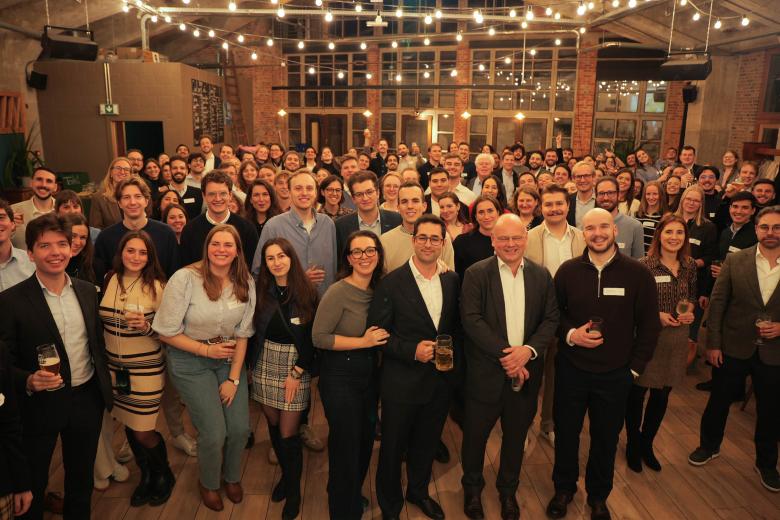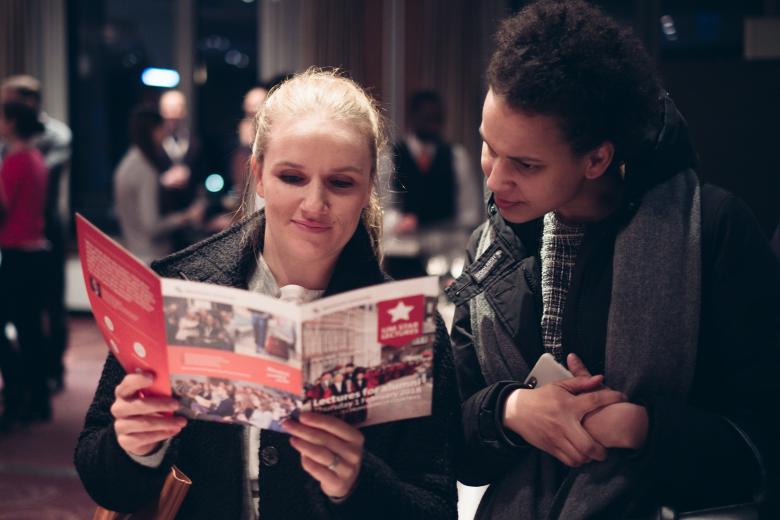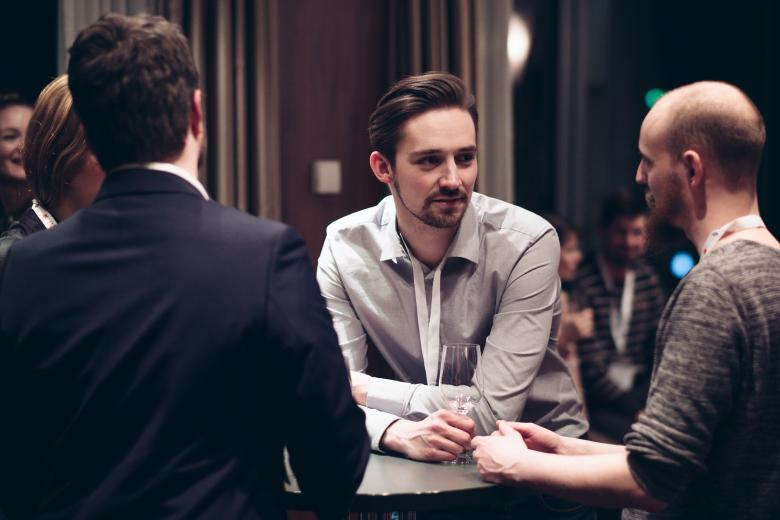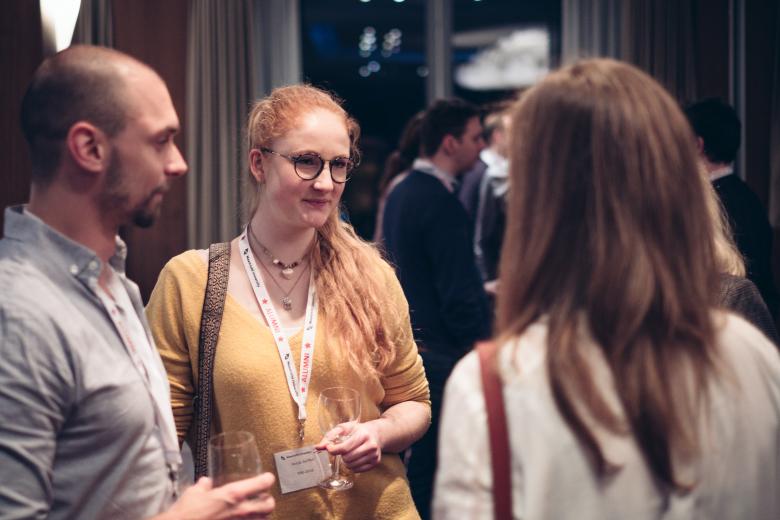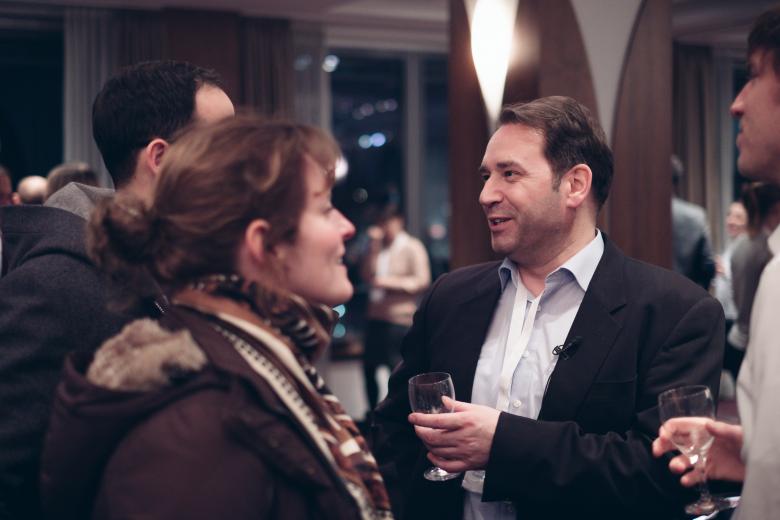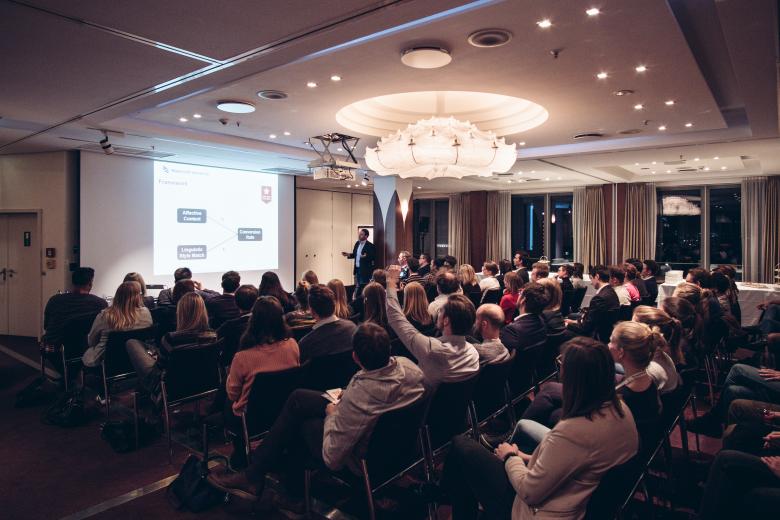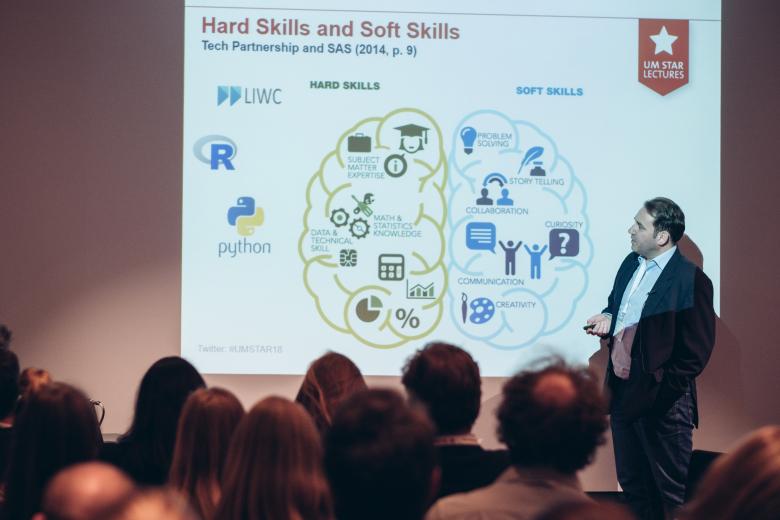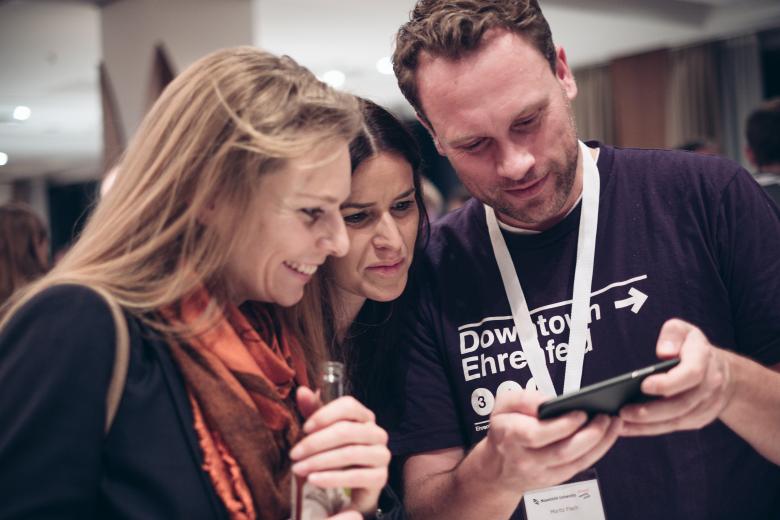Two Star lectures in the spotlight
On 1 February, 13 UM professors gave a lecture to alumni on their area of expertise, in 13 cities across four countries. The purpose of these Star lectures is to strengthen ties with our alumni community, to inspire, to share scientific insights and experiences, and to make memories. Two professors discuss their contributions.
Rob Markus
endowed chair of ‘Neuropsychology; in particular Nutrition, Brain and Behaviour’, gave a lecture in Utrecht entitled ‘Stress, the brain and behaviour: what influence does food have?’
“This is the second year that I’ve given a Star lecture and I really enjoy doing it. For one because it’s in Utrecht, the city where I studied and lived. I even defended my dissertation in the same room of the old academic building where I gave my Star lecture. And I worked for a long time at the café across from there. I also really like speaking in Dutch to a non-academic audience about the latest scientific findings in my research field. The public is usually very interested and asks good questions.”
What was your general story in Utrecht?
“I followed the line and scientific content of the past 25 years of my research and, for the most part, it consists of research into the question of what stress is and how it can make our brain susceptible to stress-related disorders such as depression and mood disorders. What then happens in the brain and what’s the genetic influence? A smaller part of my work is about how nutrition can have an impact on this. And informing the public about what’s fact and what’s fiction in this area is also a goal of my chair. In the field of nutrition, many myths are going around and it’s not always appreciated when I counter these with the findings and basic principles of the current international scientific consensus that prevails in this area. I gave examples of this to the alumni and provided guidelines for how they can do this themselves.”
And these are?
“The message is that something can only be regarded as a sufficient scientific truth if it’s endorsed by the average results of the majority of well-conducted scientific studies. This is, of course, difficult for a layperson to distinguish—which studies are methodologically sound—and especially to compare them all. But in science, we do this often and you can even pose such a critical question as a layperson when something is presented as a truth about nutrition. Because in practice, stories like ‘sugar is as addictive as cocaine’ or ‘vitamins make you smarter’ are based on a single study and the international scientific consensus says the opposite.”
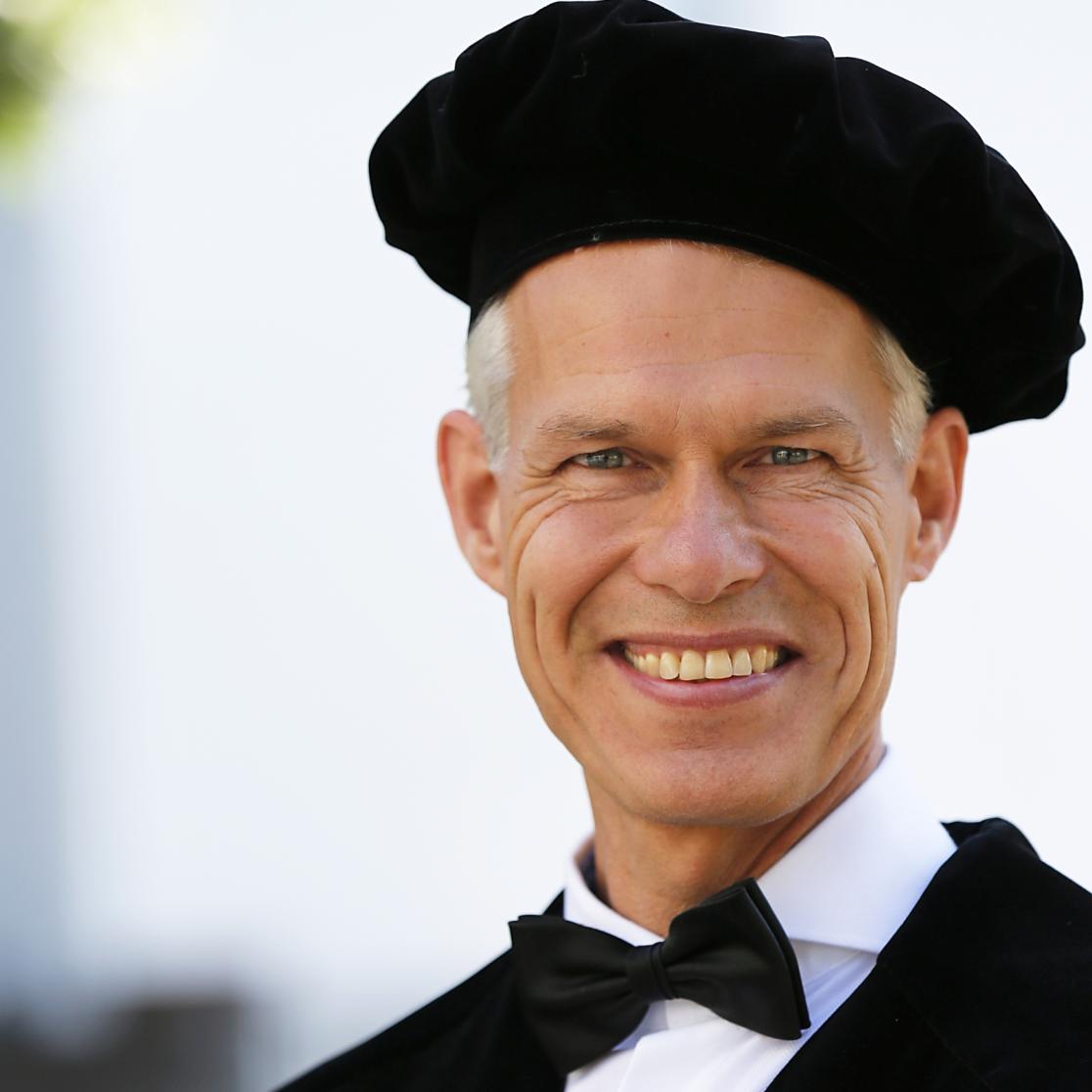
Esther Versluis
professor of European Regulatory Governance, gave a lecture in Brussels entitled 'Europe in crisis? The EU as crisis manager '
“I participated in the Star lectures for the first time this year, and my lecture was about how, as an organisation, you deal with uncertainty and complex situations. The EU is currently struggling with issues such as the refugee crisis, Brexit, international terrorism, diseases such as Ebola and swine fever. These kinds of ‘cross-border’ crises can’t be addressed by the EU with an unambiguous response that works for all 28 Member States. This is also evident from the scientific literature: with these types of ‘wicked problems’, it’s already complicated to agree on the definition of the problem. Take Brexit, for example: the British government will define the underlying problem very differently from the Greek government. The national context determines the perception, and thus the desired solution also differs per country. Then it’s not so strange that the EU is struggling with these kinds of complex cases.”
Does the EU actually work at all?
“That’s indeed the misconception. More than 90 per cent of the decisions within the EU are of a very practical or technical nature and there’s no problem in reaching a consensus that countries also comply with. The only problem is that when something good is passed, such as low rates for international calls or flights, measures that make is easier to work and study abroad, or environmental legislation, national politicians like to claim the credit for this. The unpopular measures are blamed on the EU, while the Member States also reached consensus on those together.”
What is your proposal for solving the complex problems?
“I advocate for ‘differentiated integration’, which actually means that the countries that agree on a certain approach commit themselves to it, without all 28 necessarily having to do so. This has already happened, for example, with the introduction of the Euro and with the Schengen Agreement. I think that’s the way forward for the EU. The only difficulty is that all Member States must agree that this group of countries can move forward like this. And there is, of course, the danger that Europe will fragment and become even more difficult to explain to the public. In this age of populism, simple answers are of course desirable, but they’re simply not available for complex issues.”
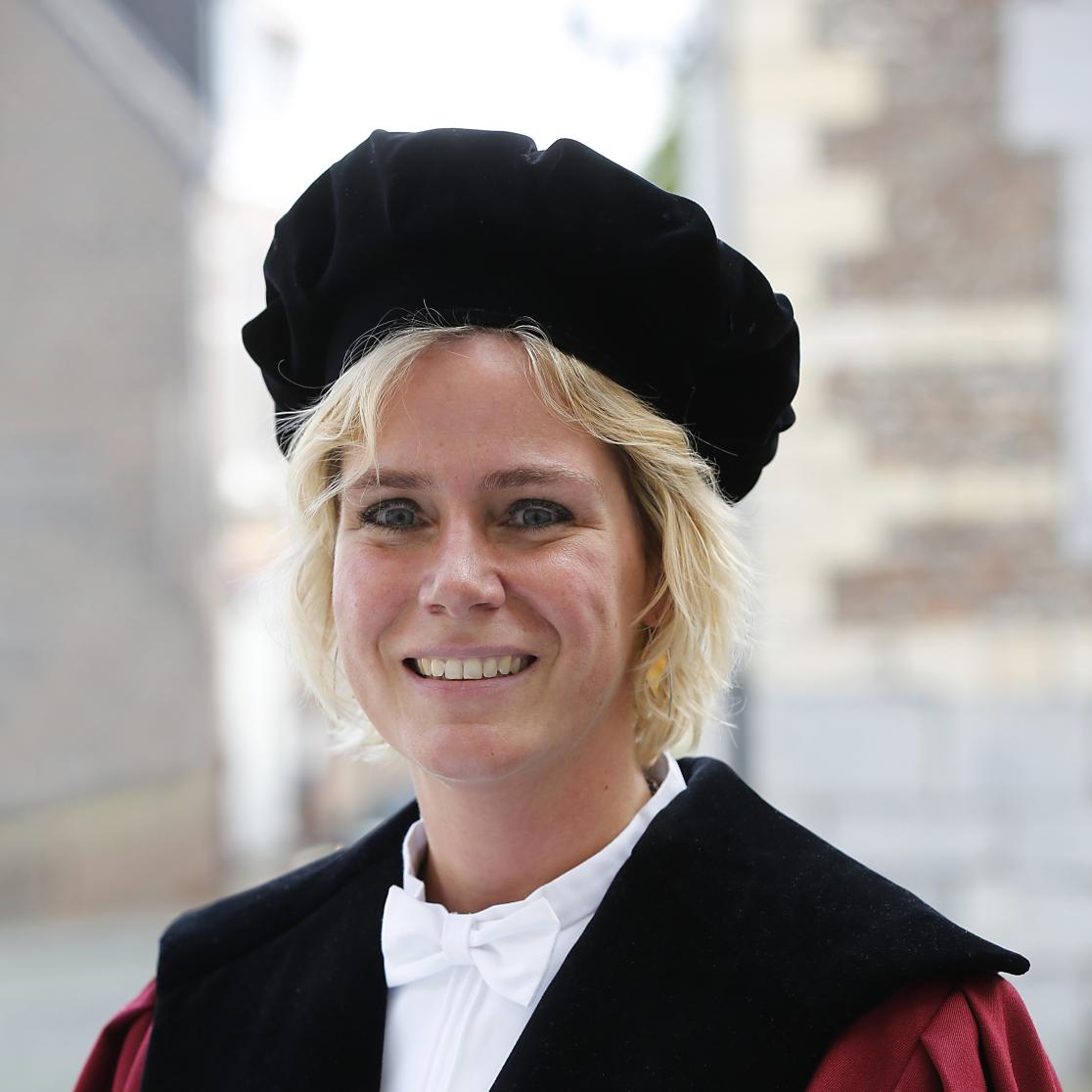
Jos Kievits, Development & Alumni Relations Director: "Sharing a past as students at Maastricht University (UM) makes networking quite a bit easier. Experience shows that "UMmers" enjoy helping each other out with their careers and personal development. Some alumni even freely volunteer their expertise and time to support UM and to aid its further development. All this activity adds up to an invaluable network. Graduating automatically makes you a member of a global and multidisciplinary network, which is certainly an invaluable opportunity. For UM and its faculties as well, it's very worthwhile to make even greater efforts in this regard."
The School of Business and Economics newsletter also published an interview with Professor Rachel Pownall, who gave a lecture in Frankfurt about 'Appreciating art in the global economy'.
Also read
-
More than a student job: five alumni about their unique role in groundbreaking vascular research
What is it like to take part in cutting-edge vascular research as a student, standing in the operating room, directly responsible for handling patient material? Five alumni of the Maastricht MAPEX student team share what they learned, the challenges they faced, and how this experience shaped their...

-
SoundLab
On September 19, 2025, the MCICM introduced a new form of interactive audience participation, the Sound Lab.
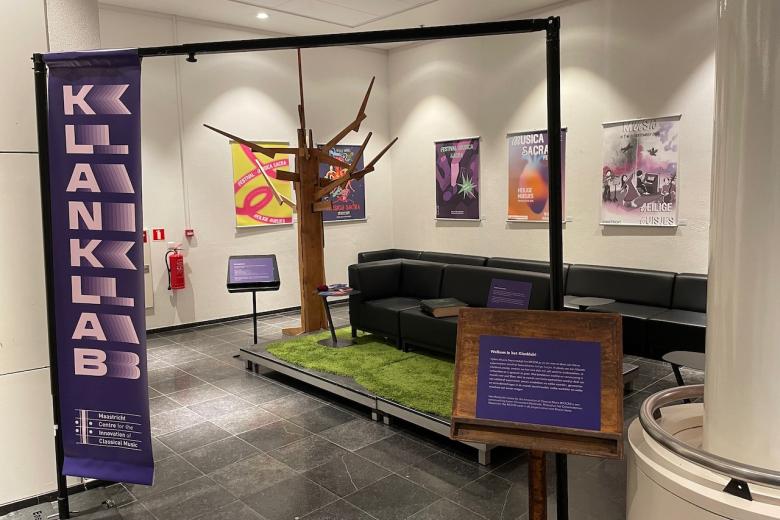
-
MA European Public Affairs Turns 25 – Alumni Celebrate in Brussels
Maastricht University recently celebrated the 25th anniversary of its European Public Affairs Master’s programme (MA EPA) with a large alumni gathering in Brussels. The event, held on 30 October at Au Bassin, welcomed more than 120 alumni from across 25 graduating cohorts — from the first class in...
